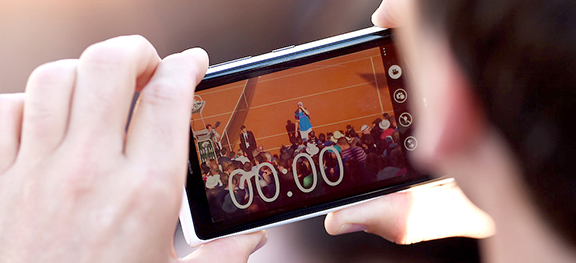First published on www.sportindustry.biz
Sport rights holders are approached by numerous companies looking to sell Wi-Fi and other in stadia connectivity solutions. The reasons for this are three fold:
- Smart phone penetration in the UK will reach 80% by the end of 2015, fans now have devices that will benefit from connectivity
- Fans, particularly the millennials generation expect to be connected. A Cisco study shows that 44% of fans site connectivity as very important to their experience with over half now preferring to watch at home
- Connectivity allows rights holders and sponsors to talk to fans when they are at their most engaged
Most solutions are expensive and it is often difficult to justify the cost of a Wi-Fi install. The advent of 5G, due to be released in South Korea in 2018 will dramatically change connectivity and as a result in stadia fan engagement.
The Power of 5G
Scientists from Surrey University believe it is now possible to run a wireless data connection at an astounding 800Gbps – which would allow users to download 33 HD films in a single second. The speeds and huge data capacities will revolutionise many markets and sport is just one of these.
The UK and South Korea are leading the way; Surrey University and partners will be deploying 5G trials in Brighton and a number of other testbeds around the UK, whilst there are plans to launch a temporary trial for 2018’s Winter Olympic Games. It is likely that this will be more widely available in the UK by 2020.
How will 5G affect current systems?
1. High Density Wi-Fi
Although high density Wi-Fi has been installed in a limited number of venues in the UK, providers such as Cisco and Huawei and have found it hard to gain acceptance from clubs. With costs ranging from £500K to £2m per venue this is hardly a surprise. In addition, calibrating all the access points in a concrete bowl is an incredibly complicated task and reliability can be a problem. 5G could make the need for high density Wi-Fi completely redundant.
2. Peer to Peer Networking
Using Wi-Fi direct (the technology that automatically connects your mobile phone to your Wi-Fi at home), peer to peer networking enables phones with the same mobile app to share information in a local network rather than needing to connect directly to Wi-Fi or 3G/4G. If one person has a connection in the stadium then they share the live scores with all those sitting in the same stand.
The more people on this network, the better it performs and for this reason it could become more important when 5G hits the UK market and clubs are looking to share larger amounts of data with their fans.
3. Multicasting
Multicasting is a networking technology that greatly reduces the cost of distributing over any wireless network. If a thousand people want to see the same content, rather than sending the same content one thousand times, multicast will allow all thousand devices to register and receive a single sending of the data. Essentially it allows a one-to-many distribution of content (e.g. video) rather than having to replicate data requests from multiple users. This technology can be used by clubs to send out video highlights to fans at half time. Multicast will likely be available in the next generation of 5G systems, as well as its availability in Wi-Fi, and will thus provide a legitimate alternative to a pure Wi-Fi solution.
What will this mean for fans?
In stadia fan experience is about atmosphere, being with friends and cheering your team. What does 5G have to do with this? Connectivity does not necessarily change the fan experience but it can dramatically enhance it.
Here are a few areas where providing fans with mobile functionality can enhance their experience:
1. Content: delivering live match analysis, half time replays and ref decisions to fans. TV does this brilliantly and currently fans are less well informed in the stadium
2. Participation: enabling fans to take part in voting for the man of the match, betting, predicting the score at half time and even challenging away fans to quiz head to heads
3. Logistics: ordering drinks, tickets to the next match, knowing how long it will take to the leave the stadium, upgrading your seat
Much of this functionality is possible at the moment but 5G will make this activities like this more seamless for fans and less expensive for rights holders. Combine this with good old fashioned team support and there will be no comparison when it comes to experience.








